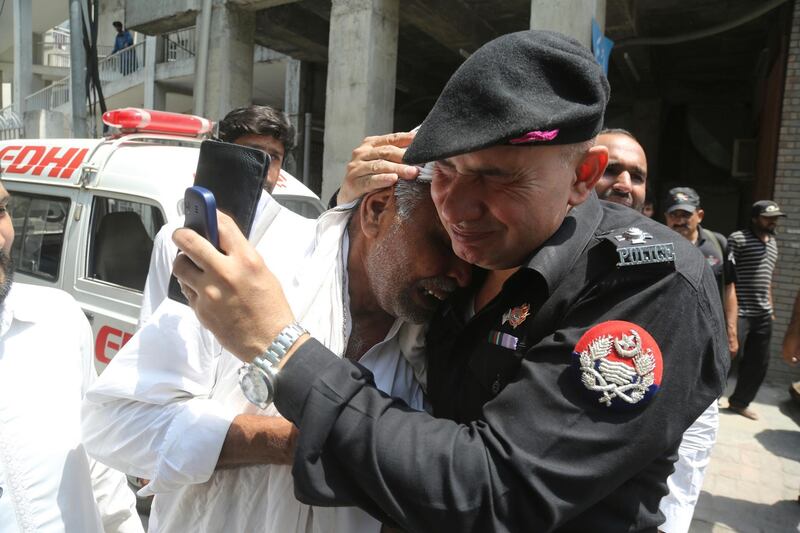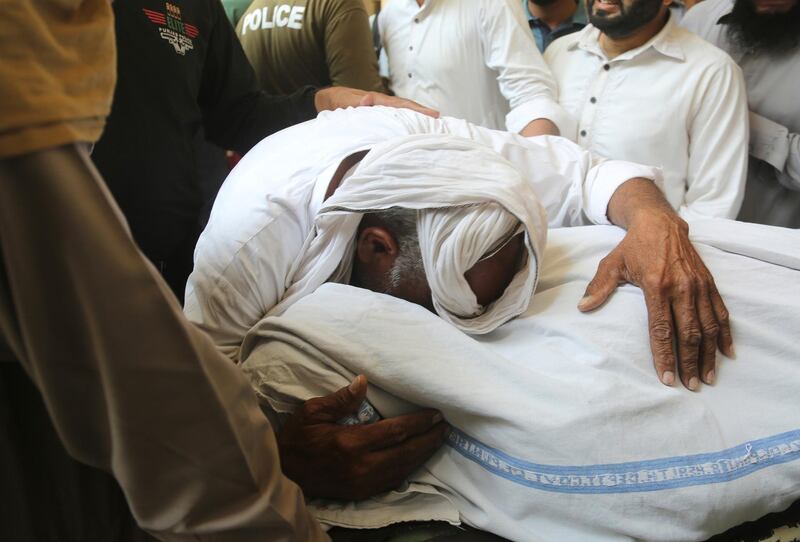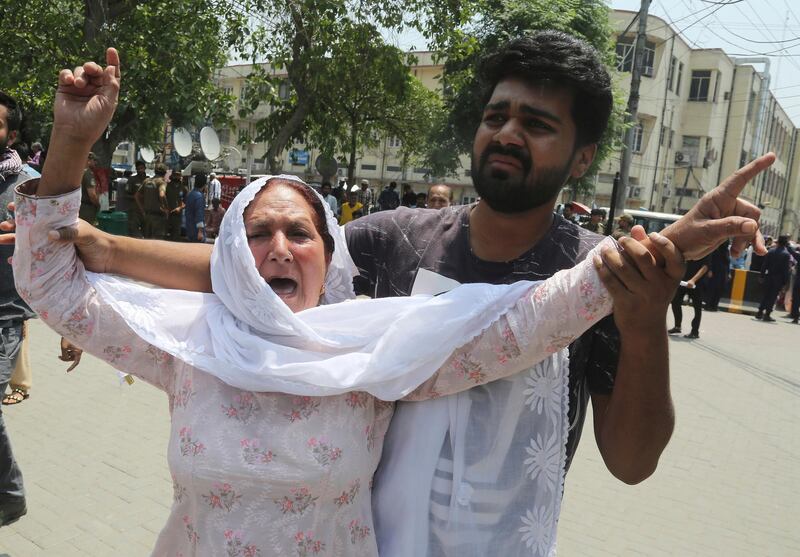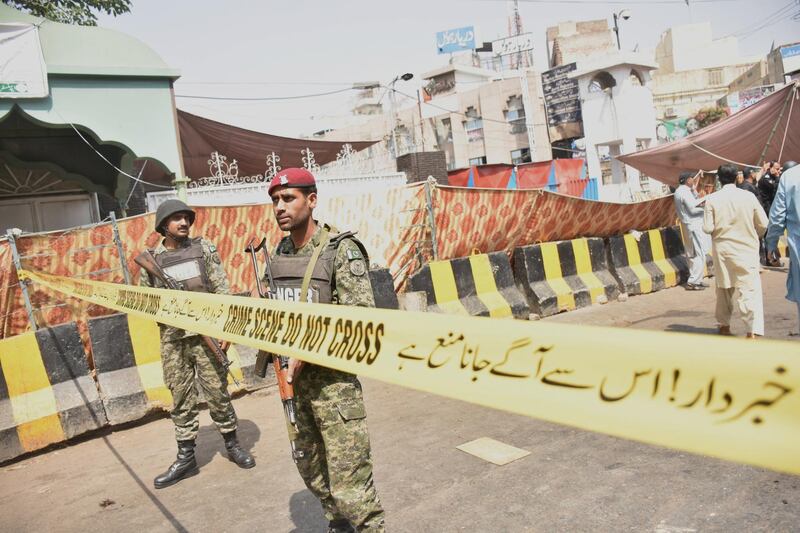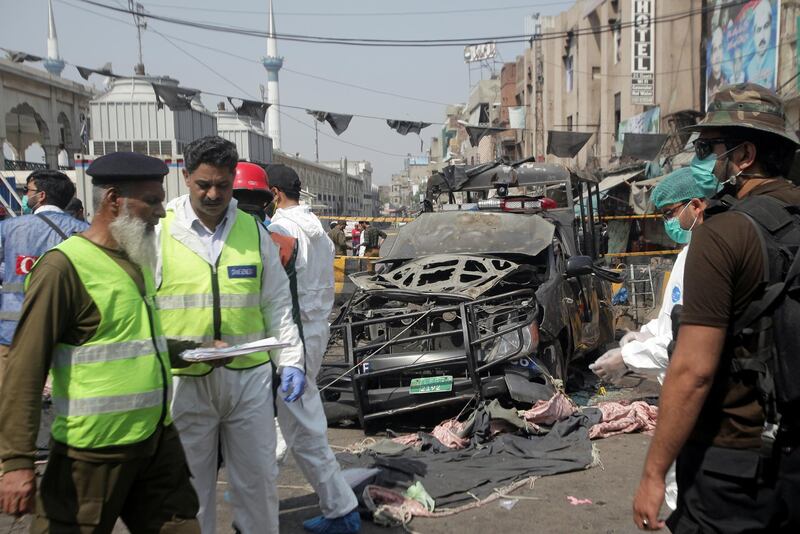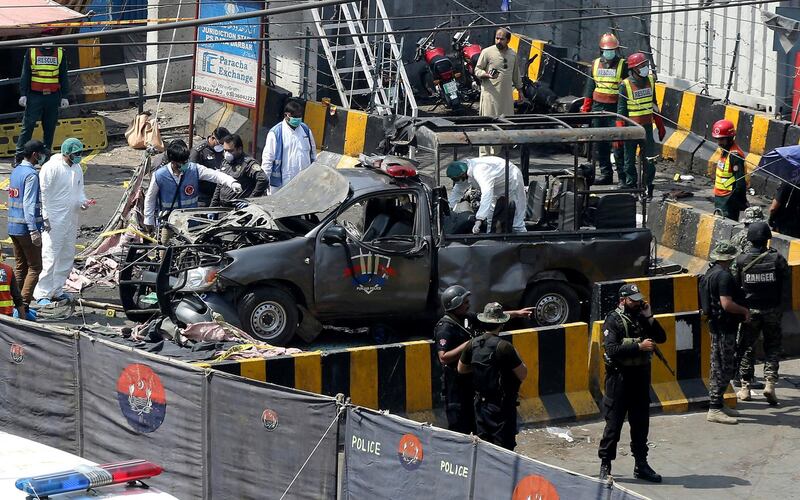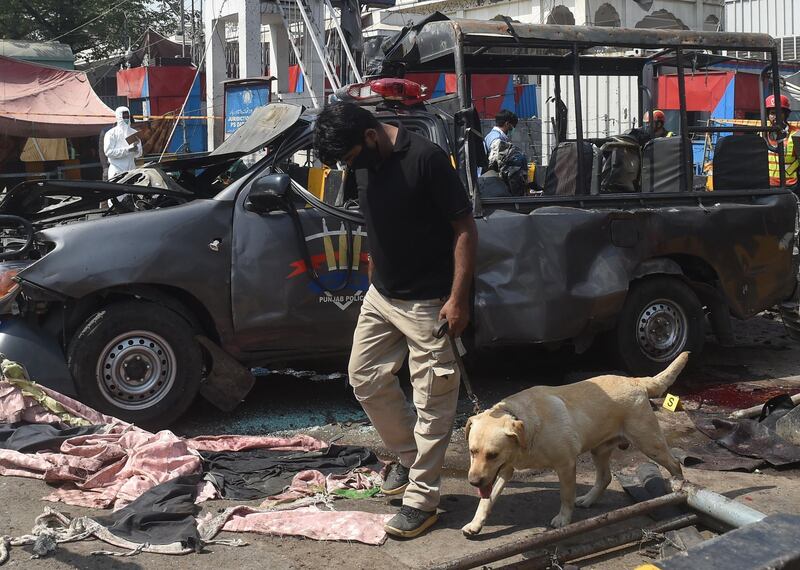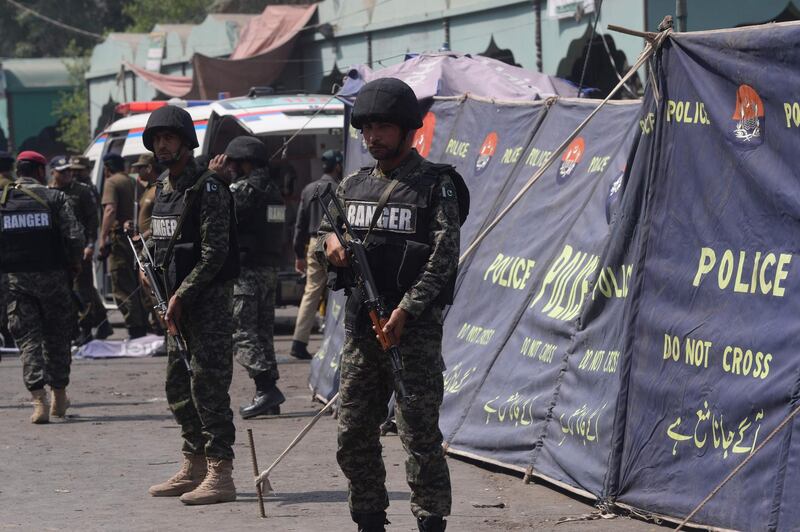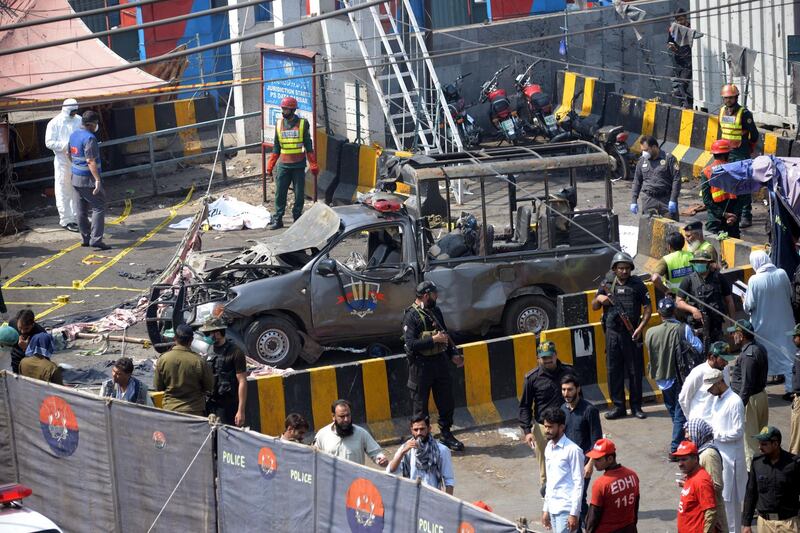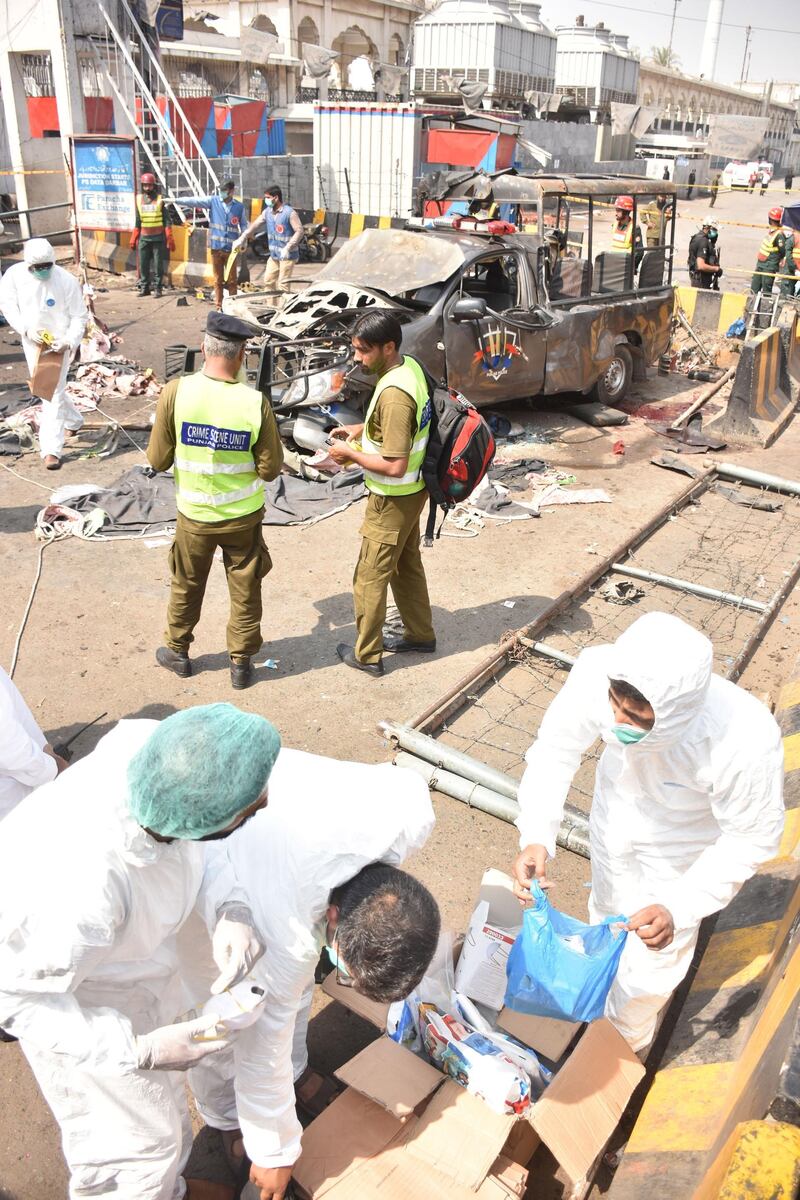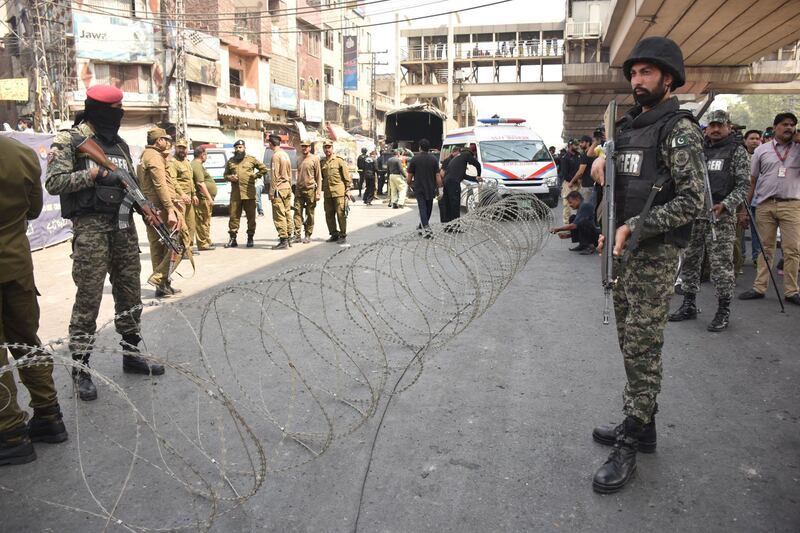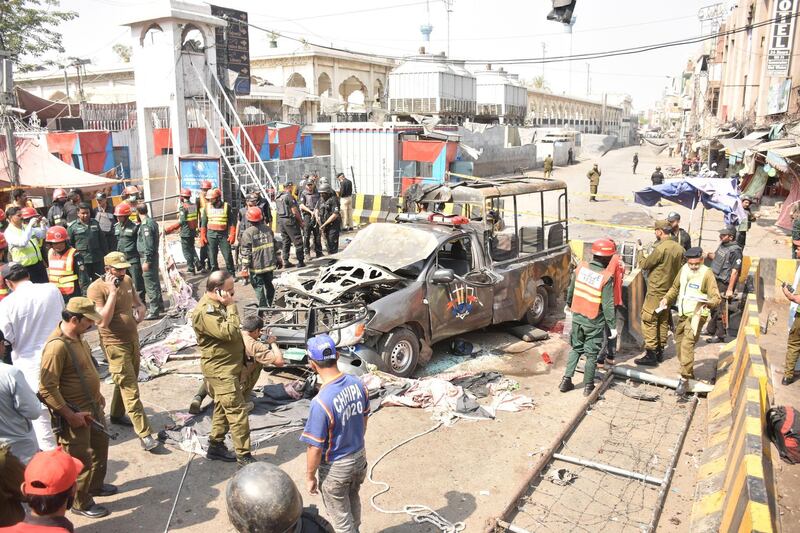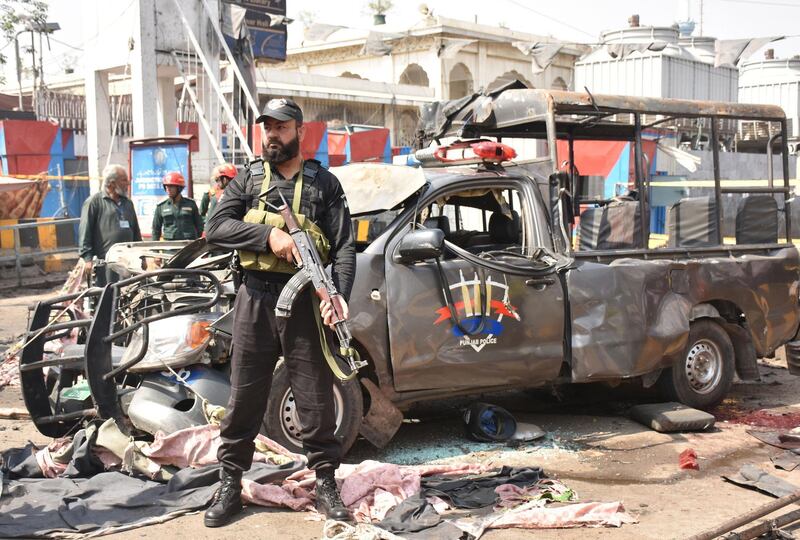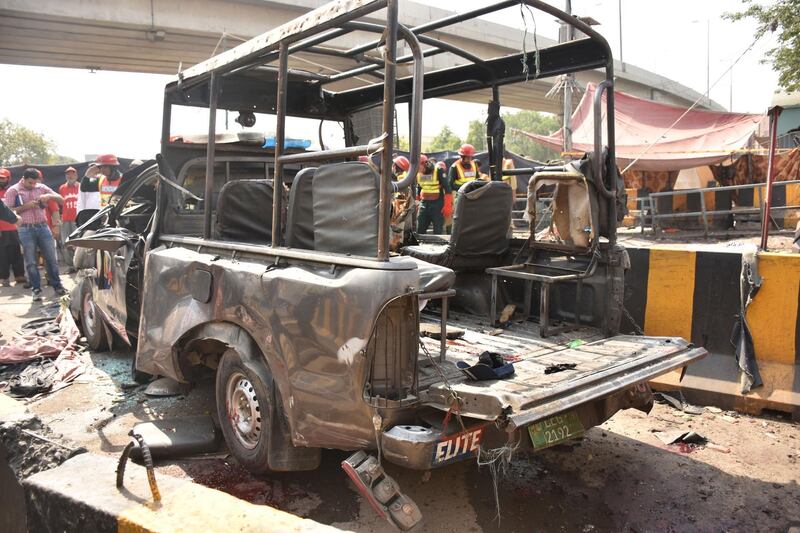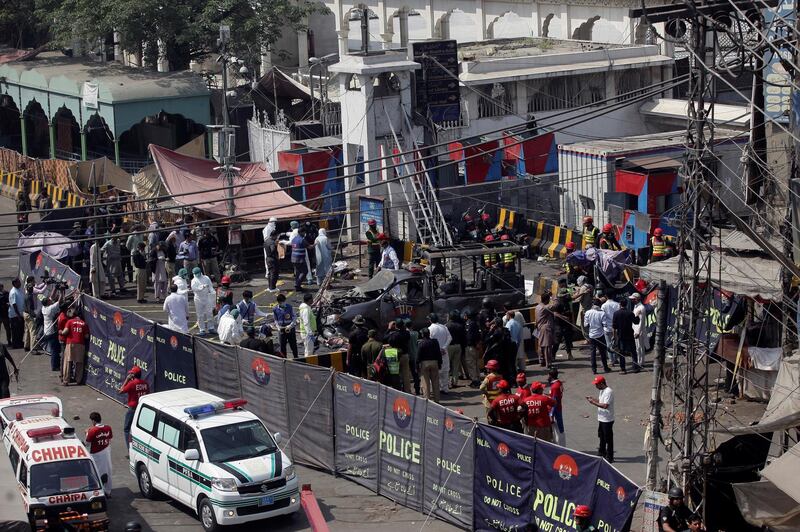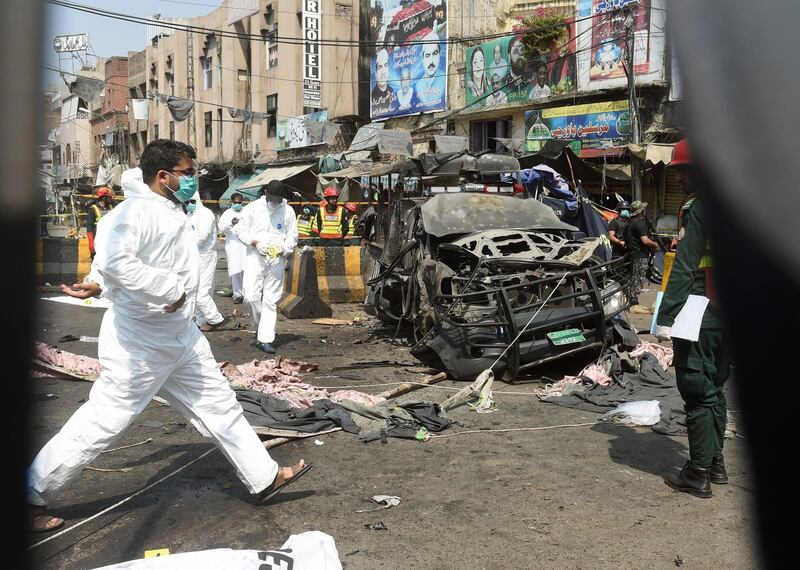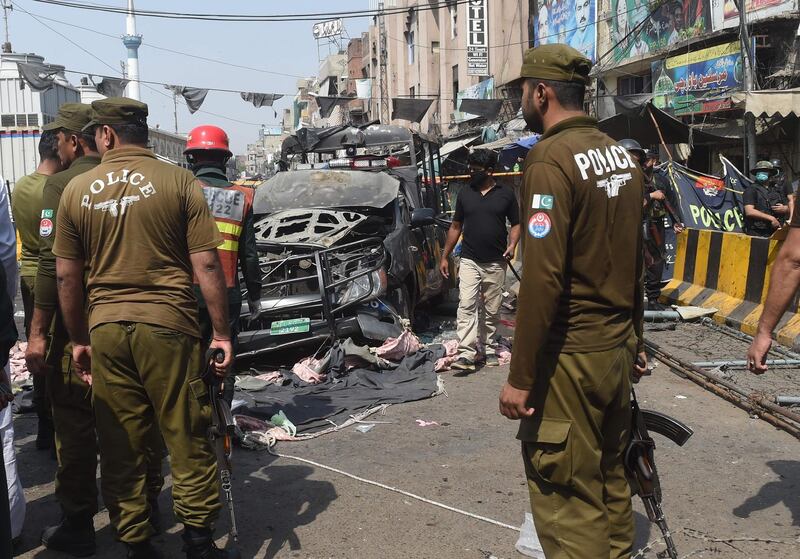At least nine people have been killed in a bombing at a shrine in the Pakistan city of Lahore.
About 24 others were wounded in the blast targeting the Data Darbar site in the northwest of the city, Pakistan security forces and state television said.
The blast occurred in a crowded area near the entrance gate for female visitors to the 11th-century Sufi shrine, which is one of the largest of its kind in South Asia.
The Pakistani Taliban took responsibility for the bombing in a statement, saying they tried to avoid civilian casualties.
"This attack was carried out at a time when there were no civilians near the police," said Abdul Aziz Yousafzai, spokesman for the Hizbul Ahrar militant group, a faction of the Pakistani Taliban.
The shrine has been targeted previously, in a 2010 suicide attack that killed more than 40 people.
Since then the area has been under heavy security, with visitors forced to pass through several layers of screening before they can enter the complex.
Senior police official Muhammad Ashfaq told a press conference that the security personnel at the shrine were targeted, but stressed that the cause and nature of the blast remains under investigation.
Three police officials, a security guard and a civilian were killed, he said. Provincial health minister Yasmin Rashid confirmed the toll.
The blast may have been "a suicide attack" on a security vehicle, police official Muhammad Kashif said.
Critics have long argued the military and government crackdown has not addressed the root causes of extremism in Pakistan, where hardline Muslim groups often target religious minorities.
Sufi worshippers, who follow a mystical strain of Islam, have frequently been the target of bloody attacks in Pakistan by militant groups.
The Data Darbar complex contains the shrine of Saint Syed Ali bin Osman Al Hajvery, popularly known as Data Ganj Bakhsh. Originally from Afghanistan, he was one of the most popular Sufi preachers on the subcontinent.
Tens of thousands of pilgrims visit the shrine each spring to mark his death anniversary, while it is also crowded weekly with worshippers listening to qawwali, a traditional form of Islamic devotional music.
